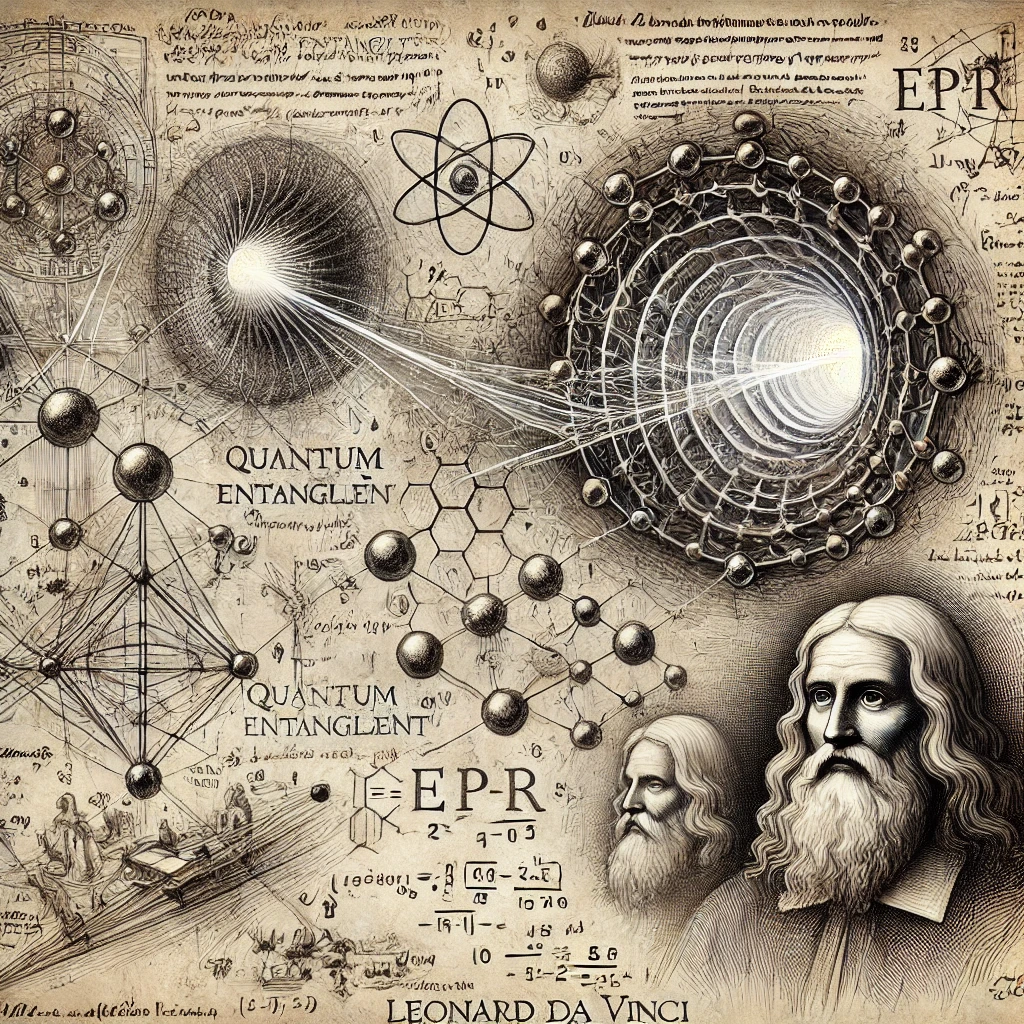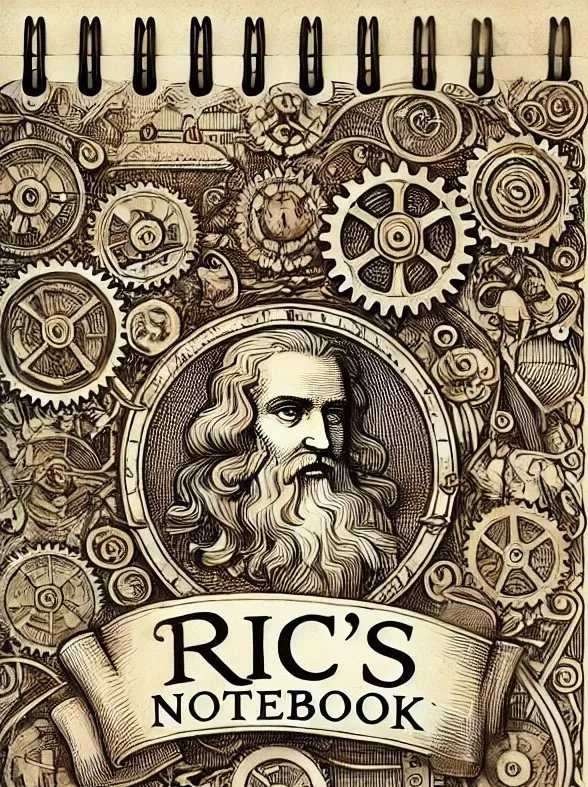
- Published on
- Authors

- Name
- ric de yuga 😄
🕳️ EPR Wormholes: Quantum Bridges in Spacetime 🕳️
In the intersection of quantum mechanics and general relativity lies one of the most intriguing concepts in modern physics: EPR wormholes. Named after Einstein, Podolsky, and Rosen (EPR), who first discussed quantum entanglement, these theoretical constructs offer a potential link between the quantum realm and the fabric of spacetime.
🧪 The Quantum Foundation: Entanglement 🧪
At the heart of EPR wormholes is the phenomenon of quantum entanglement. When two particles become entangled, their quantum states are inextricably linked, regardless of the distance between them. This "spooky action at a distance," as Einstein called it, is described by the entanglement entropy:
S = -Tr(ρ log ρ)
Where:
- S is the entanglement entropy
- ρ is the reduced density matrix of the subsystem
The entanglement entropy quantifies the amount of quantum information shared between entangled particles.
🌌 The Relativistic Connection: Wormholes 🌌
Wormholes, on the other hand, are solutions to Einstein's field equations in general relativity:
G_μν + Λg_μν = (8πG/c^4)T_μν
Where:
- G_μν is the Einstein tensor
- Λ is the cosmological constant
- g_μν is the metric tensor
- G is Newton's gravitational constant
- c is the speed of light
- T_μν is the stress-energy tensor
Wormholes represent theoretical "shortcuts" through spacetime, connecting distant regions of the universe.
🔗 The EPR-ER Bridge 🔗
The EPR-ER bridge, proposed by Juan Maldacena and Leonard Susskind, suggests that quantum entanglement (EPR) and wormholes (Einstein-Rosen bridges, or ER) are fundamentally the same phenomenon. This connection is expressed through the ER = EPR conjecture.
In this framework, the entanglement entropy between two quantum systems is related to the geometry of a wormhole connecting them:
S ≈ A / (4G)
Where:
- S is the entanglement entropy
- A is the area of the wormhole's event horizon
- G is Newton's gravitational constant
This relationship, reminiscent of the Bekenstein-Hawking entropy formula for black holes, suggests a deep connection between quantum information and spacetime geometry.
🧮 Quantum Complexity and Wormhole Length 🧮
Recent work has extended the EPR-ER connection to relate quantum complexity to the length of wormholes. The quantum complexity C, which measures how difficult it is to transform one quantum state into another, is proposed to be related to the length L of the wormhole:
C ≈ L / (l_p)
Where:
- C is the quantum complexity
- L is the length of the wormhole
- l_p is the Planck length
This relationship suggests that as quantum systems evolve and become more complex, the corresponding wormhole grows longer.
🔬 Implications and Future Research 🔬
The concept of EPR wormholes has profound implications for our understanding of quantum gravity, black hole information paradox, and the nature of spacetime itself. Future research directions include:
- Developing experimental tests to probe the EPR-ER connection
- Exploring the role of EPR wormholes in holographic theories of quantum gravity
- Investigating the implications for quantum computation and information theory
As we continue to explore this fascinating interface between quantum mechanics and general relativity, EPR wormholes may provide crucial insights into the fundamental nature of our universe.
